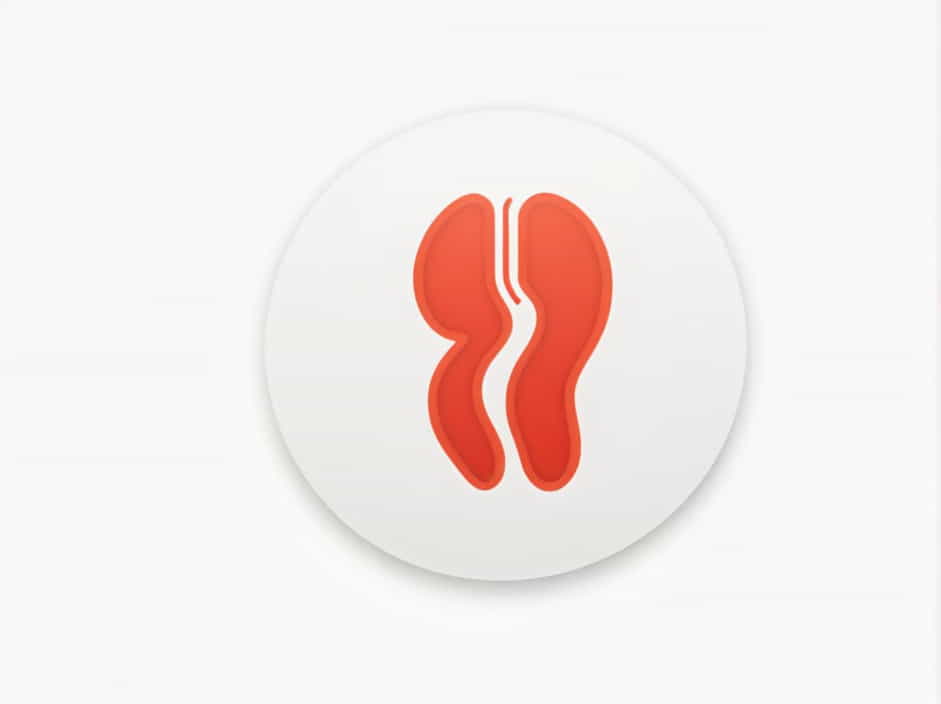The kidneys are essential organs that filter waste and excess substances from the blood, maintaining the body’s fluid balance and electrolyte levels. Without proper kidney function, harmful toxins would build up, leading to serious health problems.
In this topic, we’ll explore the different waste products the kidneys remove, how the excretion process works, and why maintaining kidney health is crucial.
1. How Do the Kidneys Filter Blood?
The kidneys contain millions of tiny filtering units called nephrons, which remove waste while retaining essential nutrients. Blood enters the kidneys through the renal arteries, gets filtered, and the purified blood exits through the renal veins. The waste products and excess fluids are then expelled as urine.
Key Steps in Kidney Filtration:
- Glomerular Filtration – Blood is filtered in the glomerulus, allowing small molecules like water, glucose, and waste to pass through while retaining larger proteins and blood cells.
- Tubular Reabsorption – Useful substances like water, glucose, and electrolytes are reabsorbed into the bloodstream.
- Tubular Secretion – Additional waste products and toxins are actively secreted into the urine.
- Urine Excretion – The final waste is transported to the bladder and expelled through urination.
2. What Waste Products Do the Kidneys Remove?
The kidneys eliminate a variety of harmful substances, including metabolic waste, excess minerals, and toxins.
2.1. Urea and Ammonia
- Source: Breakdown of proteins in the liver
- Why it’s removed: Urea is toxic in high amounts and must be excreted to prevent poisoning
- Excretion method: Kidneys filter urea into urine for elimination
Urea is one of the main nitrogenous wastes in urine. It is formed when the liver converts ammonia (a byproduct of protein metabolism) into a less toxic compound.
2.2. Creatinine
- Source: Breakdown of creatine phosphate in muscles
- Why it’s removed: High creatinine levels indicate kidney dysfunction
- Excretion method: Filtered out by the glomeruli and excreted through urine
Creatinine is a waste product of muscle metabolism, and its level in the blood is a key indicator of kidney function.
2.3. Uric Acid
- Source: Breakdown of purines from food and cell metabolism
- Why it’s removed: Excess uric acid can form kidney stones or gout
- Excretion method: Filtered by the kidneys and eliminated in urine
Purines are found in red meat, seafood, and alcohol, making diet an important factor in uric acid buildup.
2.4. Excess Water and Electrolytes
- Source: Excess water and salts from food and drinks
- Why it’s removed: To maintain blood pressure, hydration, and electrolyte balance
- Excretion method: Adjusted by the kidneys based on hydration levels
The kidneys regulate electrolytes like sodium (Na+), potassium (K+), calcium (Ca2+), and phosphate (PO4³−). Too much sodium can cause high blood pressure, while too much potassium can lead to heart problems.
2.5. Drugs and Toxins
- Source: Medications, alcohol, and environmental toxins
- Why it’s removed: To prevent toxicity and maintain homeostasis
- Excretion method: Processed by the liver and excreted through the kidneys
Many medications are metabolized in the liver but eliminated by the kidneys. Painkillers (NSAIDs), antibiotics, and chemotherapy drugs all rely on proper kidney function for removal.
2.6. Hydrogen Ions (H+) and Bicarbonate (HCO3-)
- Source: Acid-base balance regulation in the body
- Why it’s removed: To prevent acidosis (too much acid) or alkalosis (too much base)
- Excretion method: Adjusted by the kidneys to maintain pH balance
The kidneys help maintain blood pH between 7.35 and 7.45 by excreting hydrogen ions or reabsorbing bicarbonate as needed.
3. How Do the Kidneys Respond to Different Conditions?
The kidneys constantly adjust waste excretion based on the body’s needs.
3.1. Dehydration
- What happens? The kidneys conserve water by producing concentrated urine (dark yellow).
- Hormone involved: Antidiuretic hormone (ADH) signals the kidneys to retain water.
3.2. High Salt Intake
- What happens? Excess sodium is filtered out, leading to more water retention and higher blood pressure.
- Hormone involved: Aldosterone helps regulate sodium balance.
3.3. High Protein Diet
- What happens? More urea and ammonia are produced, increasing kidney workload.
- Risk: Kidney strain, especially in individuals with pre-existing kidney conditions.
4. Signs That the Kidneys Are Not Working Properly
When the kidneys fail to remove waste efficiently, toxins build up in the blood, leading to kidney disease.
Common Symptoms of Kidney Problems:
- Swelling in the legs and feet (fluid retention)
- Frequent urination or reduced urine output
- Fatigue and weakness (due to toxin buildup)
- Foamy or bloody urine (protein loss or kidney damage)
- High blood pressure (due to sodium imbalance)
5. How to Keep the Kidneys Healthy
Keeping the kidneys in good condition ensures they can effectively filter and remove waste.
5.1. Stay Hydrated
- Drinking enough water helps flush out toxins and prevent kidney stones.
5.2. Eat a Balanced Diet
- Reduce salt and processed foods to prevent high blood pressure.
- Eat foods rich in antioxidants like berries and leafy greens.
5.3. Limit Protein and Sugar Intake
- High protein diets increase urea production, straining the kidneys.
- Excess sugar can lead to diabetes, a major cause of kidney disease.
5.4. Avoid Overuse of Medications
- Painkillers (NSAIDs) can damage the kidneys if taken excessively.
- Monitor medications if you have kidney disease.
5.5. Exercise Regularly
- Physical activity lowers blood pressure and improves kidney circulation.
5.6. Get Regular Kidney Function Tests
- Blood tests for creatinine and urea help detect kidney problems early.
- Urine tests check for protein loss, a sign of kidney damage.
The kidneys are responsible for removing waste products like urea, creatinine, uric acid, excess water, and toxins from the blood. They also help maintain pH balance, regulate electrolytes, and control blood pressure.
Maintaining proper hydration, a balanced diet, and a healthy lifestyle is essential for keeping the kidneys functioning properly. Regular checkups can help detect kidney disease early, preventing serious complications.
Taking care of your kidneys ensures they continue to filter and remove harmful substances, keeping your body healthy and balanced.
